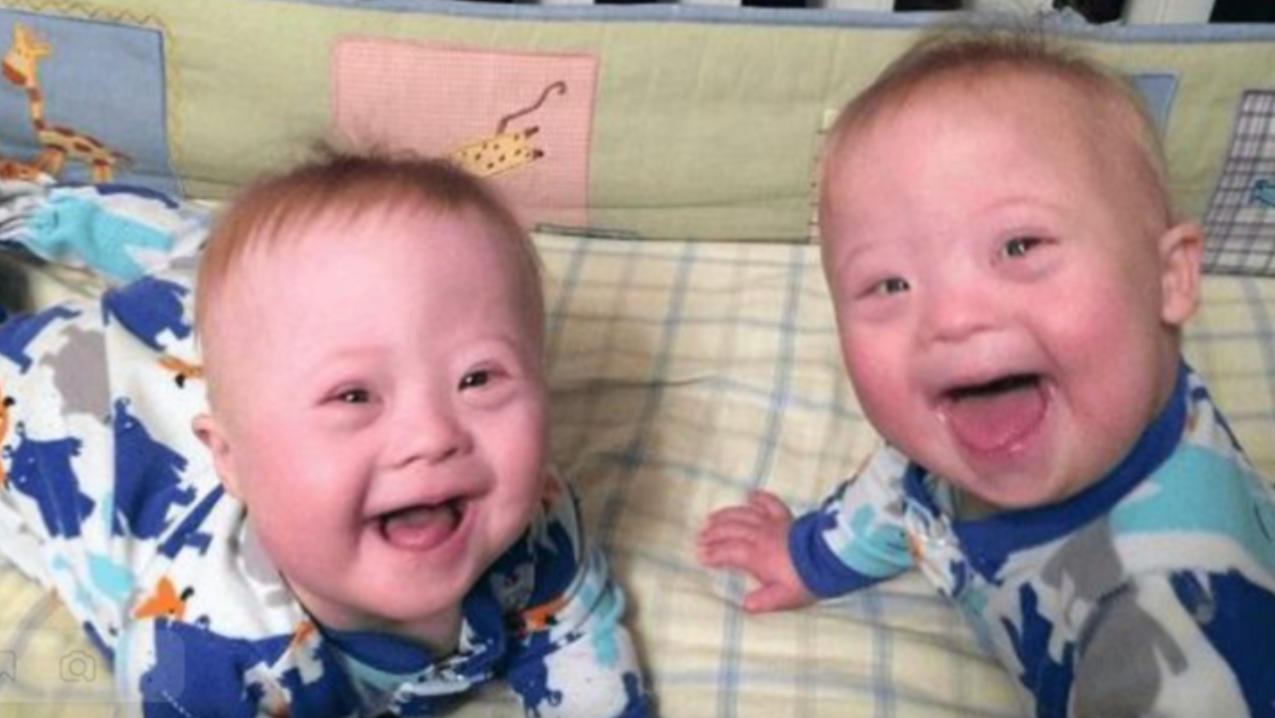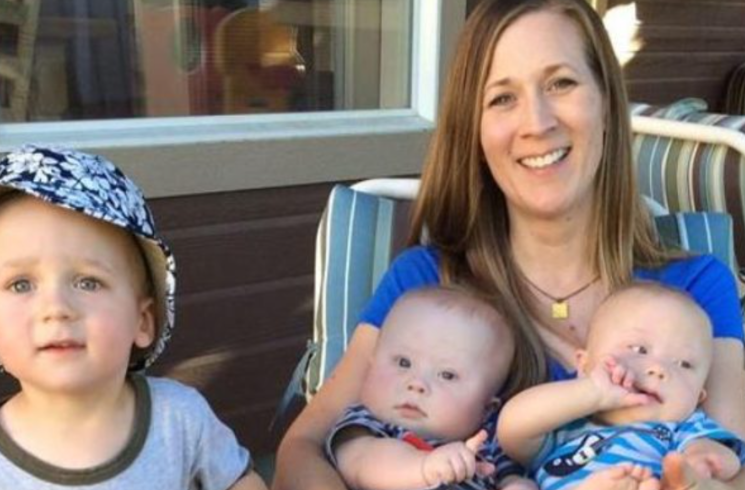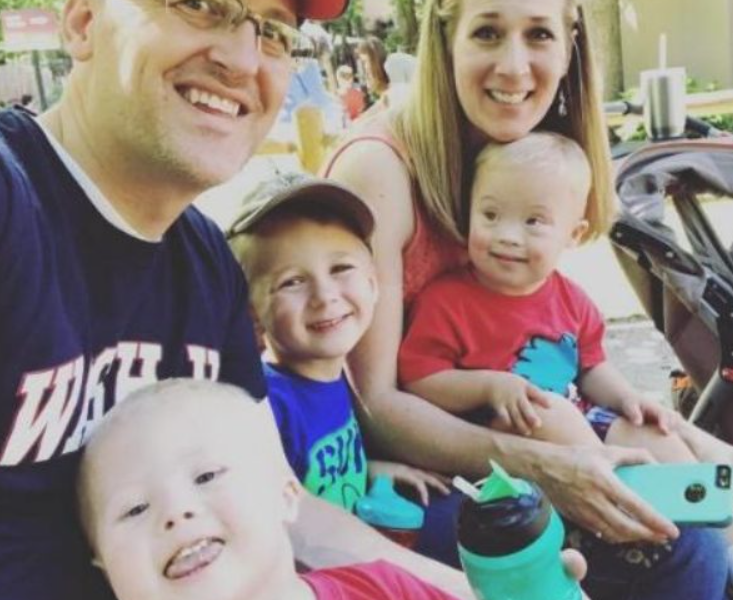
People often use the term “sunny” to describe youngsters with ᴅᴏᴡɴ sʏɴᴅʀᴏᴍᴇ. That’s because these children stand out from everyone else thanks to their individuality and traits like friendliness, responsiveness, true happiness, and altruism.
But when parents learn about this, they often feel significantly worried. They also need some time to come to terms with the situation and find happiness properly.
46-year-old Julia McConnell was devastated to find that her two prospective twins might have this illness.

Initially, she was to place them for adoption, but despite that, she had the fortitude to deal with it and didn’t regret it. Julia and her husband knew all the potential hazards and planned the pregnancy on purpose.
The two were already forewarned about the potential hazards of pathologies connected to the parents’ ages before even thinking about the pregnancy issue. When the babies were diagnosed, that was the day they both acknowledged, was the saddest day of their life.
Julia and her husband could not even begin to anticipate how terrifying and dreadful it would be to raise children with special needs. Future parents made the decision to consult couples who had already gone through a comparable situation, and after learning the details, things got a little bit simpler for them.
When she first saw her twin daughters, she felt an amazing sense of joy and understood how foolish it must have been for her to reject them. According to Julia, every time she sees her babies, her heart skips a beat.

Everyone should know that a pregnant woman’s age affects her likelihood of having a child with special needs.
For example, the likelihood of having kids with ᴅᴏᴡɴ sʏɴᴅʀᴏᴍᴇ at age 25 is 1/1400, and at age 40, it is roughly 1/60. And the likelihood of having twins with ᴅᴏᴡɴ sʏɴᴅʀᴏᴍᴇ is roughly 1 in 1,000,000.Although they make an effort to spend more time with their kids, they are quite concerned about their future and want to make sure they are not mistreated or made fun of.



